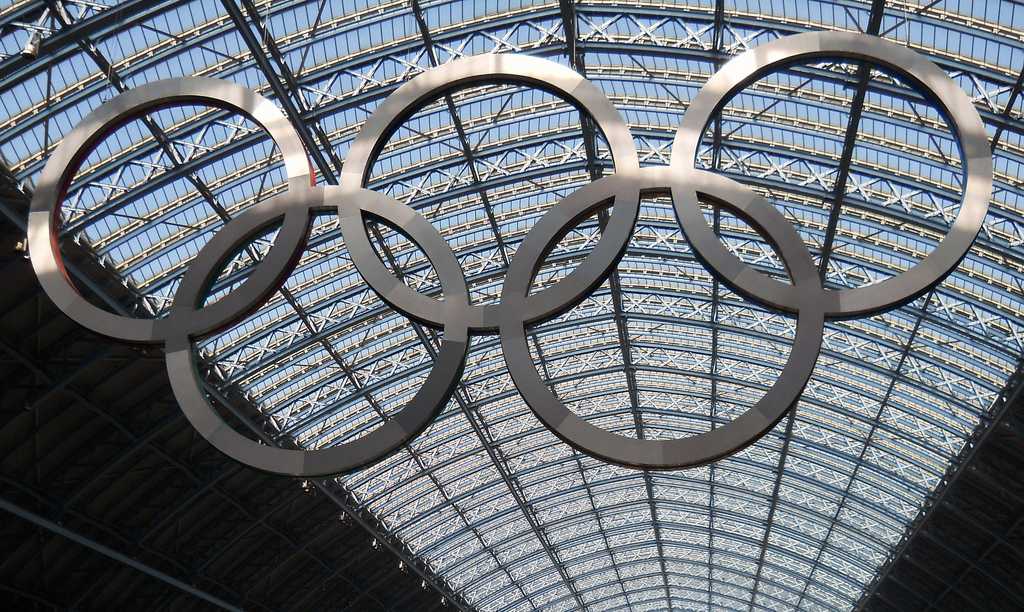Sochi 2014: Do not mix the games with politics
With still three weeks to come, the 2014 Sochi Winter Olympic Games have definitely had their share of controversy, from fears of insufficient levels of snow, to two deadly bombing bombings in a neighboring town, and perhaps most provocative, the anti-gay legislation that threatens prosecution of anyone displaying non-traditional sexual relations in the presence of minors.
Many countries have chosen to show their disapproval of these terms by not sending their leaders to the games. President Obama, who will not be attending the games, has chosen to make a statement by sending openly gay athletes Billie Jean King, Caitlin Cahow, and Brian Boitano as members of the U.S. delegation.
Although some countries and social groups are intent on holding political rallies at the games to spread their message to the world, I think President Obama’s move is rather well-played: he has made a statement without making a scene.
Athletes hoping to compete in the upcoming games have dedicated their entire lives for this event: hours upon hours of hard work and dedication to achieve the goal of their dreams. They have sacrificed their livelihoods to get this single shot at glory. While equality around the world certainly is important, the Olympics are not an appropriate place to make a stand.
Openly gay American figure skater Johnny Weir, who is a two time Olympian, will not be attending the games due to health related issues. He does not support the idea of boycotting the games, stating that he would have competed in the games despite the anti-gay controversy.
“I would have competed there because my whole life has been about going to the Olympics. Being gay isn’t something that I chose, being gay is something I was born into,” he said. “But being an Olympic athlete was something that I chose and something I worked hard for and I’ll see it to any necessary end.”
Although boycotting the Olympics will make it clear that we do not agree with their laws (not to mention a waste of over 50 billion dollars), it solves no problems. The LGBT community would still be restricted by the country’s laws. Although Putin has improved Russia’s image by freeing members of the Pussy Riot female protest group and pardoning Arctic 30 demonstrators, he is probably not going to annul his anti-gay law in the aftermath of a boycott.
The most effective way to solve this issue is to support all athletes participating in the games. By standing by our athletes, many of whom are part of the LGBT community, we show them our respect and compassion for their cause. Athletes competing in sports they respect highlights that they are strong enough to hold their values despite tough opposition.
Trisha Jani is the news editor of The Winged Post. She is a senior and has been part of the journalism program since her freshman year. Her position on...


















![“[Building nerf blasters] became this outlet of creativity for me that hasn't been matched by anything else. The process [of] making a build complete to your desire is such a painstakingly difficult process, but I've had to learn from [the skills needed from] soldering to proper painting. There's so many different options for everything, if you think about it, it exists. The best part is [that] if it doesn't exist, you can build it yourself," Ishaan Parate said.](https://harkeraquila.com/wp-content/uploads/2022/08/DSC_8149-900x604.jpg)




![“When I came into high school, I was ready to be a follower. But DECA was a game changer for me. It helped me overcome my fear of public speaking, and it's played such a major role in who I've become today. To be able to successfully lead a chapter of 150 students, an officer team and be one of the upperclassmen I once really admired is something I'm [really] proud of,” Anvitha Tummala ('21) said.](https://harkeraquila.com/wp-content/uploads/2021/07/Screen-Shot-2021-07-25-at-9.50.05-AM-900x594.png)







![“I think getting up in the morning and having a sense of purpose [is exciting]. I think without a certain amount of drive, life is kind of obsolete and mundane, and I think having that every single day is what makes each day unique and kind of makes life exciting,” Neymika Jain (12) said.](https://harkeraquila.com/wp-content/uploads/2017/06/Screen-Shot-2017-06-03-at-4.54.16-PM.png)








![“My slogan is ‘slow feet, don’t eat, and I’m hungry.’ You need to run fast to get where you are–you aren't going to get those championships if you aren't fast,” Angel Cervantes (12) said. “I want to do well in school on my tests and in track and win championships for my team. I live by that, [and] I can do that anywhere: in the classroom or on the field.”](https://harkeraquila.com/wp-content/uploads/2018/06/DSC5146-900x601.jpg)
![“[Volleyball has] taught me how to fall correctly, and another thing it taught is that you don’t have to be the best at something to be good at it. If you just hit the ball in a smart way, then it still scores points and you’re good at it. You could be a background player and still make a much bigger impact on the team than you would think,” Anya Gert (’20) said.](https://harkeraquila.com/wp-content/uploads/2020/06/AnnaGert_JinTuan_HoHPhotoEdited-600x900.jpeg)

![“I'm not nearly there yet, but [my confidence has] definitely been getting better since I was pretty shy and timid coming into Harker my freshman year. I know that there's a lot of people that are really confident in what they do, and I really admire them. Everyone's so driven and that has really pushed me to kind of try to find my own place in high school and be more confident,” Alyssa Huang (’20) said.](https://harkeraquila.com/wp-content/uploads/2020/06/AlyssaHuang_EmilyChen_HoHPhoto-900x749.jpeg)



